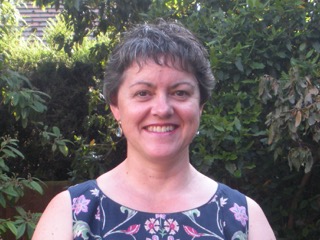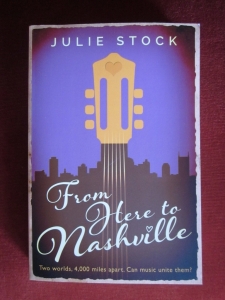This week I am delighted to welcome Julie Stock back to my blog. Earlier this year, she wrote a guest post about creating the two very different settings for her debut novel, From Here To Nashville. Today she is going to share her writing tips with us.
* * * *
|
Hi Sue. Thanks for inviting me. It's an interesting topic! I've given it some thought and have come up with the top three that work for me.
|
1. When I'm writing a first draft, I try to write a minimum amount each day. If I am not under lots of pressure, I might make this 1,000 words a day, but if it's a busy time, I set my target to something more manageable. If I'm editing or rewriting, I find it much harder to get down to it because it's so much more involved! Still, I try to achieve something on my list of things to do every day.
|
2. After writing two novels, a novella and a number of short stories, I have realised I am a planner, not a pantster, and I will always want to outline and then plan to some extent. I'm not saying my way is right but I have learned that pantsing doesn't work for me.
|
3. I write using Scrivenor and nothing else! I love the layout and even though there is so much I still don't know about it, it makes my life so much easier as a writer.
|
Julie Stock is an author of contemporary romance novels, novellas and short stories. She's a proud member of thr Romantic Novelists' Association's New Writers' Scheme and a member of The Alliance of Independent Authors.
She blogs about her path to publication on her website, My Writing Life.
You can also connect with her on Twitter, Goodreads and via her Facebook Author Page. |  |
 | If you would like to be the first to hear about her new releases and other news, you can also sign up to receive her occasional newsletters via her website.
When she is not writing, she works part-time as a teacher. She is married with two teenage daughters and lives with her family in Bedfordshire. |


Make A Comment
Comments (10)